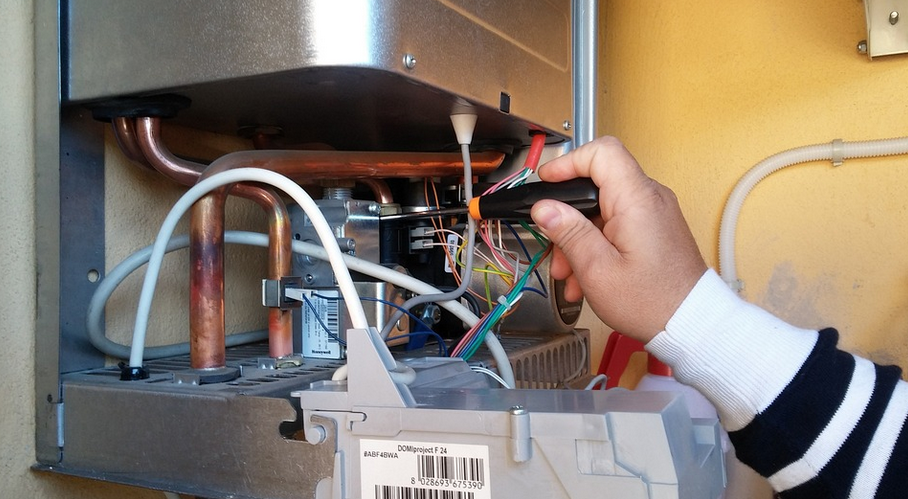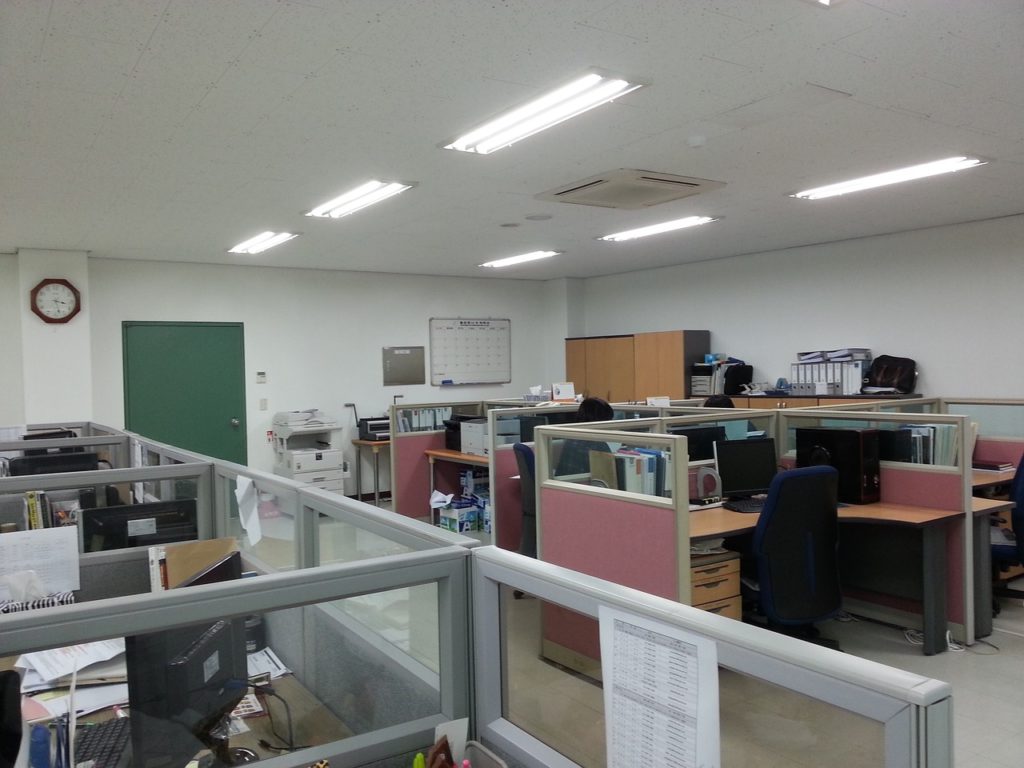The Key Benefits of Smart LED Bathroom Mirrors for Modern Living

Modern homes are quietly shifting from basic utility to intelligent comfort, and the bathroom is no exception. Once limited to tiles, taps, and simple fixtures, this space now hosts smart technology that reshapes everyday routines. Smart LED bathroom mirrors sit at the center of this change, combining lighting, digital features, and clean aesthetics into one wall-mounted solution. Homeowners upgrading their bathrooms increasingly turn to platforms. LED Mirror World has mirrors that balance innovation with practical living. These mirrors introduce lighting precision, fog resistance, and connected features that respond well to busy lifestyles. Instead of relying on multiple accessories, a single smart mirror now delivers clarity, convenience, and visual harmony, making daily grooming feel smoother, faster, and more aligned with modern expectations.
Enhanced Lighting for Daily Accuracy

One of the most noticeable benefits of smart LED bathroom mirrors is superior lighting control. Traditional overhead bulbs often cast uneven shadows that complicate shaving, skincare, or makeup application. LED mirrors project balanced illumination directly onto the face, reducing glare and dark spots. Many models allow users to switch between warm, neutral, and cool tones, helping match lighting conditions to different times of day. This flexibility supports better visual accuracy without installing extra fixtures. For households sharing a bathroom, adjustable brightness also helps different users set their preferred lighting without conflict or clutter.
Anti-Fog Technology for Clear Visibility
Fogged mirrors are a daily frustration, especially in homes with frequent hot showers. Smart LED bathroom mirrors commonly include built-in anti-fog systems that keep the glass clear even in steamy conditions. Instead of wiping the surface repeatedly or waiting for condensation to fade, the mirror stays readable almost instantly. This feature saves time during rushed mornings and keeps the mirror surface cleaner over the long term. Reduced moisture buildup also helps maintain a polished appearance, contributing to a bathroom that looks orderly rather than damp or streaked.
Integrated Smart Features for Convenience
Many smart LED mirrors now include digital displays showing time and temperature, subtle features that quietly support daily planning. Knowing the time at a glance helps keep routines on track, while temperature readings assist with outfit choices or travel preparation. Bluetooth-enabled mirrors add another layer of practicality, allowing users to play music or take hands-free calls while getting ready. These features reduce reliance on phones or external speakers, keeping countertops clear and routines less interrupted. The mirror becomes a central information point without feeling intrusive or overloaded.
Energy Efficiency and Long-Term Savings

LED technology uses less power compared to traditional incandescent or halogen lighting. Smart LED bathroom mirrors benefit from this efficiency, delivering bright illumination while consuming lower energy levels. Many mirrors include automatic shut-off or memory functions that recall previous settings, helping limit unnecessary usage. Over time, this contributes to reduced electricity bills while supporting environmentally aware households. The extended lifespan of LED lighting also means fewer replacements, cutting down on maintenance tasks and long-term costs associated with frequent bulb changes.
Space-Saving Design for Modern Bathrooms
Bathrooms, especially in urban homes, often face space limitations. Smart LED mirrors help solve this issue by combining multiple functions into a single installation. Lighting, display features, and sometimes storage are integrated directly into the mirror, reducing the need for extra wall fixtures or cabinets. This streamlined approach supports cleaner layouts and makes smaller bathrooms feel more open. Frameless and slim-profile designs further enhance this effect, allowing the mirror to blend smoothly with contemporary interiors.
Smart LED bathroom mirrors bring together lighting precision, digital convenience, and refined design in one practical feature. They simplify routines, improve visibility, and support cleaner, more efficient bathroom spaces. Through energy savings, space optimization, and modern aesthetics, these mirrors respond well to contemporary living demands. As homes continue adopting smarter solutions, the smart LED bathroom mirror stands out as a functional upgrade that blends technology with everyday comfort, making modern living feel more organized and visually balanced.…














 A surround sound system is a great way to make your hot tub feel more like a spa. With the right speakers, you can create beautiful sounds that will help you relax while taking a bath. Consider purchasing and installing high-quality speakers around the walls of your indoor hot tub area, which will really enhance the experience.
A surround sound system is a great way to make your hot tub feel more like a spa. With the right speakers, you can create beautiful sounds that will help you relax while taking a bath. Consider purchasing and installing high-quality speakers around the walls of your indoor hot tub area, which will really enhance the experience. Bringing natural elements into your indoor hot tub area is a great way to create an inviting and calming environment. Consider adding some greenery, such as plants and flowers. Not only will they look beautiful, but they’ll also help purify the air around you while relaxing in the hot tub. You can even add a fountain or a small pond with koi fish to really bring life into your indoor hot tub area.
Bringing natural elements into your indoor hot tub area is a great way to create an inviting and calming environment. Consider adding some greenery, such as plants and flowers. Not only will they look beautiful, but they’ll also help purify the air around you while relaxing in the hot tub. You can even add a fountain or a small pond with koi fish to really bring life into your indoor hot tub area.

 A quality water heater can last up to 10-12 years with proper maintenance. If yours is older than that and you’re starting to experience problems, it’s likely time for an upgrade. Consider energy-efficient models that offer tankless technology or on-demand water heating. In addition to saving money in the long run, these newer models can reduce your carbon footprint.
A quality water heater can last up to 10-12 years with proper maintenance. If yours is older than that and you’re starting to experience problems, it’s likely time for an upgrade. Consider energy-efficient models that offer tankless technology or on-demand water heating. In addition to saving money in the long run, these newer models can reduce your carbon footprint.
 The first step is to know your end goal. What do you want to achieve with the renovation? Are you hoping to increase the value of your home so that you can sell it in the future? Or are you doing it for yourself and your family so that you can enjoy the fruits of your labor for years to come? Once you know your end goal, it will be easier to stick to a budget. If you’re renovating for resale value, you’ll want to focus on high-impact projects that will make a big difference in the sale price of your home.
The first step is to know your end goal. What do you want to achieve with the renovation? Are you hoping to increase the value of your home so that you can sell it in the future? Or are you doing it for yourself and your family so that you can enjoy the fruits of your labor for years to come? Once you know your end goal, it will be easier to stick to a budget. If you’re renovating for resale value, you’ll want to focus on high-impact projects that will make a big difference in the sale price of your home. You don’t have to go all out when renovating your home. Sometimes, making small changes can have a big impact. If you’re on a tight budget, consider tackling one room at a time. This will help you stay focused and avoid going overboard. It’s also important to know your limits regarding DIY projects. If you’re not handy, hire a professional to do the work for you. This will save you time and money in the long run.
You don’t have to go all out when renovating your home. Sometimes, making small changes can have a big impact. If you’re on a tight budget, consider tackling one room at a time. This will help you stay focused and avoid going overboard. It’s also important to know your limits regarding DIY projects. If you’re not handy, hire a professional to do the work for you. This will save you time and money in the long run. There are bound to be outages when renovating your home – whether it’s the power, water, or gas. Be prepared for these outages by having a plan in place. Have flashlights and batteries ready for power outages, and know where your main water shut-off valve is located in case of a water outage. Lastly, ensure a backup plan for cooking in case of a gas outage. Renovating your house can be a great way to add value to your home and make it more comfortable for you and your family. But, it’s important to do it the right way. These economical tips on renovating your house will help you stay within your budget while achieving your desired results.…
There are bound to be outages when renovating your home – whether it’s the power, water, or gas. Be prepared for these outages by having a plan in place. Have flashlights and batteries ready for power outages, and know where your main water shut-off valve is located in case of a water outage. Lastly, ensure a backup plan for cooking in case of a gas outage. Renovating your house can be a great way to add value to your home and make it more comfortable for you and your family. But, it’s important to do it the right way. These economical tips on renovating your house will help you stay within your budget while achieving your desired results.…
 One of the most amazing benefits of renovating your home is that you can reduce the cost of your utilities. You can save money on your monthly bills by making your home more energy-efficient.
One of the most amazing benefits of renovating your home is that you can reduce the cost of your utilities. You can save money on your monthly bills by making your home more energy-efficient. One of the best things about renovating your home is that it can save you money in the long run.
One of the best things about renovating your home is that it can save you money in the long run.
 Renovating your kitchen and bathroom is one of the finest methods to raise the value of your home. These two rooms must be in good condition because purchasers will always evaluate them while making a purchase. Even modest changes like new worktops or appliances can make a great difference if you can’t afford a complete renovation. Increasing your property’s energy efficiency is another way to increase its value. This could involve updating your windows and doors or simply installing solar panels. This will increase the value of your house and, in the long term, save you money on energy costs.
Renovating your kitchen and bathroom is one of the finest methods to raise the value of your home. These two rooms must be in good condition because purchasers will always evaluate them while making a purchase. Even modest changes like new worktops or appliances can make a great difference if you can’t afford a complete renovation. Increasing your property’s energy efficiency is another way to increase its value. This could involve updating your windows and doors or simply installing solar panels. This will increase the value of your house and, in the long term, save you money on energy costs. The best way to increase the value of your home is by cleaning and decluttering it. This will make it look more appealing to buyers and help you get top dollar for your home. Be sure to deep clean every room, dust all surfaces, and declutter as much as possible. You may even consider hiring a professional cleaning company to do a thorough job. Another way to increase the value of your home is by making necessary repairs and updates. If any areas of your home need repair, be sure to take care of them before putting your house on the market. This will show potential buyers that you have taken good care of your home and that it is in good condition. Additionally, updating outdated features such as old appliances or worn-out flooring can also help increase the value of your home.
The best way to increase the value of your home is by cleaning and decluttering it. This will make it look more appealing to buyers and help you get top dollar for your home. Be sure to deep clean every room, dust all surfaces, and declutter as much as possible. You may even consider hiring a professional cleaning company to do a thorough job. Another way to increase the value of your home is by making necessary repairs and updates. If any areas of your home need repair, be sure to take care of them before putting your house on the market. This will show potential buyers that you have taken good care of your home and that it is in good condition. Additionally, updating outdated features such as old appliances or worn-out flooring can also help increase the value of your home.
 Unfortunately, many of us are guilty of holding on to things we don’t need. This can make it challenging to keep a clean home. A great way to start decluttering is by going through your belongings and getting rid of anything you no longer use or need. You can either donate these items or throw them away.
Unfortunately, many of us are guilty of holding on to things we don’t need. This can make it challenging to keep a clean home. A great way to start decluttering is by going through your belongings and getting rid of anything you no longer use or need. You can either donate these items or throw them away. The type of
The type of 


 As you shop for your tiles, it would help keep in mind the place you intend to lay them. This is because there are tiles that are only meant for the walls, others for the floor only, and some could be used on both walls and floors. Moreover, there are tiles for indoor spaces and for outside.
As you shop for your tiles, it would help keep in mind the place you intend to lay them. This is because there are tiles that are only meant for the walls, others for the floor only, and some could be used on both walls and floors. Moreover, there are tiles for indoor spaces and for outside.



 With an electric scooter, you no longer have to walk long distances. Depending on how far your destination is, an electric scooter can take you there in minutes. It makes everything much easier for you because you get to save so much time. You can accomplish more when you spend less time walking distances you could quickly and effortlessly cover on your electric scooter. Traffic cannot affect the electric scooter because it is small in size and has a small width, which allows you to move in between traffic.
With an electric scooter, you no longer have to walk long distances. Depending on how far your destination is, an electric scooter can take you there in minutes. It makes everything much easier for you because you get to save so much time. You can accomplish more when you spend less time walking distances you could quickly and effortlessly cover on your electric scooter. Traffic cannot affect the electric scooter because it is small in size and has a small width, which allows you to move in between traffic. If you gave a car, you need to ensure regular servicing and maintenance for it to remain in good shape for a longer period. Other than that, you need to fuel it now and then to move around. When you calculate all the money spent, it comes to a large amount. If you are using public transport, you need to have your transport fees with you.
If you gave a car, you need to ensure regular servicing and maintenance for it to remain in good shape for a longer period. Other than that, you need to fuel it now and then to move around. When you calculate all the money spent, it comes to a large amount. If you are using public transport, you need to have your transport fees with you.



 Sometimes it is helpful to work with what you have. There is no harm in going the old-fashioned way and utilize your hands when weeding. Many have found it beneficial to pull the weeds by hand. It is cost-effective, and you can find something to keep you active for a while. It is crucial always to wear a pair of dedicated gardening gloves.; this limits the chances of transferring the weeds’ seeds elsewhere. You can also utilize gardening tools to make your work easier.
Sometimes it is helpful to work with what you have. There is no harm in going the old-fashioned way and utilize your hands when weeding. Many have found it beneficial to pull the weeds by hand. It is cost-effective, and you can find something to keep you active for a while. It is crucial always to wear a pair of dedicated gardening gloves.; this limits the chances of transferring the weeds’ seeds elsewhere. You can also utilize gardening tools to make your work easier.
 control practices is vital if you want to keep your home free from pests. You can buy insecticides to use during the whole process. Hiring an expert for the job is another option you have. These could be companies or individuals who will carry out pest extermination in your home. Hiring pest control experts is a better option than doing all the job by yourself. Here are the reasons why you should hire one.
control practices is vital if you want to keep your home free from pests. You can buy insecticides to use during the whole process. Hiring an expert for the job is another option you have. These could be companies or individuals who will carry out pest extermination in your home. Hiring pest control experts is a better option than doing all the job by yourself. Here are the reasons why you should hire one.

 It is critical to know how long the painting contractor has been in that business. If they have been in the field for several years, there is a good reason. Most likely, it could be that they deliver excellent services within the agreed duration and charge reasonable rates. But it is not to imply that new businesses are not good enough; the issue is that they have no or minimal track record and have few reviews.
It is critical to know how long the painting contractor has been in that business. If they have been in the field for several years, there is a good reason. Most likely, it could be that they deliver excellent services within the agreed duration and charge reasonable rates. But it is not to imply that new businesses are not good enough; the issue is that they have no or minimal track record and have few reviews.



 Getting the much-needed concentration at home to study may also prove to be very difficult for a lot of people out there. It all requires self-discipline to avoid different things that may affect your concentration. Creating a proper learning environment in your home is also essential. There are several things you can do to ensure all is set for smooth learning in your home. They include:
Getting the much-needed concentration at home to study may also prove to be very difficult for a lot of people out there. It all requires self-discipline to avoid different things that may affect your concentration. Creating a proper learning environment in your home is also essential. There are several things you can do to ensure all is set for smooth learning in your home. They include: Having enough light in the studying environment you create at home is essential. Adequate lighting ensures you get the liveliness needed for proper learning and understanding. You will also have an easy time reading different materials with adequate lighting. Create the best learning environment in your home for easy understanding.…
Having enough light in the studying environment you create at home is essential. Adequate lighting ensures you get the liveliness needed for proper learning and understanding. You will also have an easy time reading different materials with adequate lighting. Create the best learning environment in your home for easy understanding.… Choosing where you will have your office can be a huge business decision. Whether you are just starting or you are planning to venture out into a new area, choosing the right office space is a business imperative. One of the main factors to consider when selecting your office is its contribution to the business. Not only do you need an office that is at a convenient place, but you also need to ensure that it caters to your business needs.
Choosing where you will have your office can be a huge business decision. Whether you are just starting or you are planning to venture out into a new area, choosing the right office space is a business imperative. One of the main factors to consider when selecting your office is its contribution to the business. Not only do you need an office that is at a convenient place, but you also need to ensure that it caters to your business needs.



 There is a need to take into account whoever lives in your home and who uses your kitchen. For instance, are the skirting boards likely to be scuffed by toys or crayons? During the kitchen remodel, it is quite easy to be swept up in aesthetics or pursuit of culinary, utilitarian heaven. However, there is a need to be realistic with your remodel. There is no need to invest a lot of money into skirting boards that you will need to replace in a few months’ time because of puppy or toddler damage. You should note that some dog breeds like chewing skirting boards.
There is a need to take into account whoever lives in your home and who uses your kitchen. For instance, are the skirting boards likely to be scuffed by toys or crayons? During the kitchen remodel, it is quite easy to be swept up in aesthetics or pursuit of culinary, utilitarian heaven. However, there is a need to be realistic with your remodel. There is no need to invest a lot of money into skirting boards that you will need to replace in a few months’ time because of puppy or toddler damage. You should note that some dog breeds like chewing skirting boards.






 Associate With the World
Associate With the World
 Information Transfer
Information Transfer


 Covering the lowest part of interior walls, skirting boards are made primarily to cover the space between the wall and the floor. As a wall protector, it acts as a shield to unnecessary force that is exerted on the lower part of your walls like kicks or when we are moving fixtures and pieces of furniture. Your walls will be protected when your vacuum cleaner comes in contact when you are cleaning. The walls will also be kept safe from scratches from your toddler’s toys.
Covering the lowest part of interior walls, skirting boards are made primarily to cover the space between the wall and the floor. As a wall protector, it acts as a shield to unnecessary force that is exerted on the lower part of your walls like kicks or when we are moving fixtures and pieces of furniture. Your walls will be protected when your vacuum cleaner comes in contact when you are cleaning. The walls will also be kept safe from scratches from your toddler’s toys. Other Functions
Other Functions

 The condition of your roof can set the tone of your house valuation. Good roofing can be seen from a distance and can have positive influences on valuators. If you cannot afford a total roof replacement, checking for leaks, cleaning and repairing of hanging gutters, and repainting of the roof can do the trick. When your roofing is made out of clay tiles, you should scrub off discolorations to bring back the red-brown natural shade of clay.
The condition of your roof can set the tone of your house valuation. Good roofing can be seen from a distance and can have positive influences on valuators. If you cannot afford a total roof replacement, checking for leaks, cleaning and repairing of hanging gutters, and repainting of the roof can do the trick. When your roofing is made out of clay tiles, you should scrub off discolorations to bring back the red-brown natural shade of clay. Patio and Front Yard Refurbishment
Patio and Front Yard Refurbishment

 Modern fixtures are great as they make a fashion statement. They also offer functionality and style. It is advisable to choose gold or chrome fixtures as they are popular and simple to install. Avoid resin handles and clear plastic handles as they are no longer a trend.
Modern fixtures are great as they make a fashion statement. They also offer functionality and style. It is advisable to choose gold or chrome fixtures as they are popular and simple to install. Avoid resin handles and clear plastic handles as they are no longer a trend.
